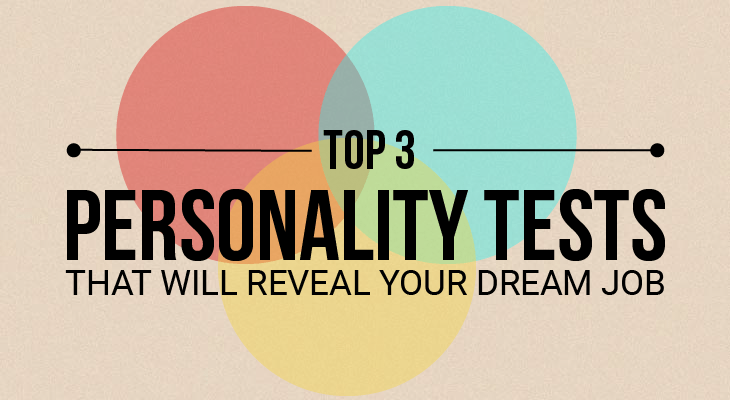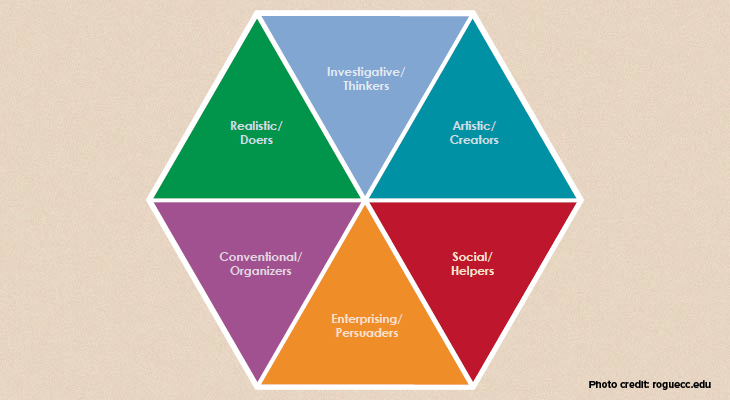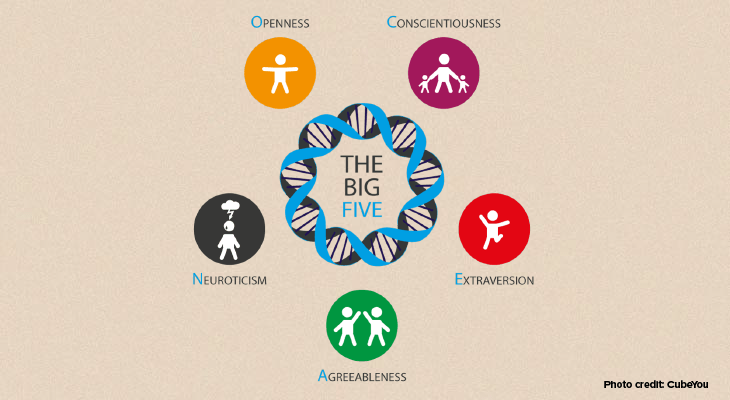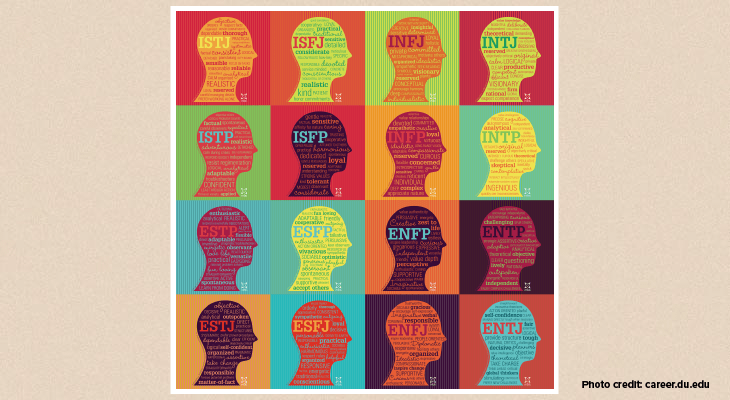The Top 3 Personality Tests That Will Reveal Your Dream Job
Unsure of your future career path or what you should study at university? These popular personality tests may be the key to pointing you in the right direction!
Updated 17 Jun 2019

Despite the rise of quirky BuzzFeed tests that keep popping up on your social media feed with promises to unearth the secrets of your personality by establishing what flavour of ice cream you are, personality tests are nothing new.
In fact, they’ve been used since the beginning of the 20th century to help people determine their career pathways. Just ask Frank Parsons, one of the world’s first career guidance counsellors who measured his client’s skulls and asked how often they showered to help them determine their true calling in life. How strange.
But personality tests have come a long way since then. In this article, we round up some of the most popular personality tests that could help you learn more about yourself while unlocking career interests at the same time.
#1. Holland Codes (RIASEC)

What is it?
The Holland Codes, also known as the RIASEC model, was developed by academic psychologist Dr. John L. Holland to help people determine the careers that best suit their personality.
Dr. Holland proposed that personalities flourish in career environments they fit in and jobs can be classified by the personalities that thrive in them. He classified these into 6 personalities: Realistic (Doers), Investigative (Thinkers), Artistic (Creators), Social (Helpers), Enterprising (Persuaders) and Conventional (Organisers).
What are the personality types?
- Realistic (Doers): People who like to work with their hands and objects, such as tools and machines. They enjoy working outdoors and are often athletic.
- Investigative (Thinkers): People who like to observe, learn, analyse and solve problems. They like working with ideas and are seen as intellectual and analytical.
- Artistic (Creators): People who like to unleash their creativity. They often express themselves through artistic endeavours, such as art, music and writing.
- Social (Helpers): People who like to help, understand, teach or motivate others. They often value community and interpersonal relationships.
- Enterprising (Persuaders): People who enjoy persuading and selling. They are often ambitious, confident, competitive and find themselves in leadership positions.
- Conventional (Organisers): People who like to work with numbers, rules and structure. They are often seen as organised and detail-oriented.
How can this test help you decide your career path?
This free 10-minute test comprises questions about whether you like or dislike certain tasks. Upon completing the test, the results will display your scores for each personality type, where you should focus on your 3 highest scoring personality types (e.g. Investigative-Artistic-Social, Conventional-Realistic-Investigative).
Thereafter, you can find out more about the careers that are suited to your RIASEC score in our article here or over at this comprehensive database of jobs.
#2. The Big 5 Personality Test
What is it?
This personality test is based on the Five Factor Model (FFM), developed by many contemporary psychologists over the years. It breaks down human behaviour into 5 main traits — Openness to experience, Conscientiousness, Extraversion, Agreeableness and Neuroticism.
The test indicates your areas of interest and gives insight into how you respond to external stimuli such as how you deal with sticky situations and how you react with the people around you.

What are the personality traits?
- Openness: How open you are to new and abstract ideas
- Conscientiousness: How determined you are to pursue long-term goals
- Extraversion: How much you rely on external stimuli to provide satisfaction and achievement
- Agreeableness: How willing you are to put the needs of others ahead of your own
- Neuroticism: How likely you are to buckle under pressure
How can this test help you decide your career path?
This free test takes approximately 15 minutes from start to finish and asks questions to uncover the truth about your personality, your interests and your emotional state. The results will reveal whether you rank high, low or average in each of the 5 personality traits mentioned above (e.g. high conscientiousness, low in extraversion).
From there, dive in to the courses that are suited to your personality in our article here.
Apply for university with EduAdvisor
Secure scholarships and more when you apply to any of our 100+ partner universities.
Start now#3. Myers-Briggs Type Indicator (MBTI)
What is it?
Arguably the most popular personality test on this list, the MBTI is the brainchild of Isabel Briggs-Myers and her mother Katherine Briggs. The test measures personality types rather than traits and is based on the work of Swiss psychiatrist, Carl Jung.
p>The MBTI model proposes that people direct and take energy, process information, make decisions and approach the outside world in one of two ways known as ‘preferences’. Based on this key insight, the test categorises people into 16 different personality types made up of 4 of these ‘preferences’.
What are the preferences?
- Introversion vs. Extraversion (I/E): Whether you would rather spend your time alone or surrounded by others
- Sensing vs. Intuition (S/N): Whether you prefer to process information with your senses or through a more abstract level of thinking
- Thinking vs. Feeling (T/F): Whether you usually make decisions with your head or your heart
- Judging vs. Perceiving (J/P): Whether you prefer structure or flexibility
How can this test help you decide your career path?
This free test takes 15 minutes and requires you to choose the word that best describes yourself from a pair of polar opposite characteristics. Your answers will indicate your ‘preferences’ based on the four indicators, which will make up your four-letter personality type. For example, if your results show that you have a tendency for Introversion, Intuition, Feeling and Judging, your personality type is INFJ.
Thereafter, check out this website that lists the most suitable careers based on your MBTI personality type.
Which personality test is the best?
There isn’t a definitive answer to this question because these three personality tests measure different aspects of your personality.
However, it’s important to note that the reliability of MBTI as a personality indicator has come under fire over the past 3 decades. This is because critics say that it fails to give consistent results upon retesting and insists that people fall between two mutually exclusive categories (e.g. you are either an introvert or extrovert) rather than on a spectrum of personality (e.g. you can be both an introvert and an extrovert).

Why take personality tests?
Not only are they fun but they act as a great way to uncover your likes and dislikes, which could inspire you to pursue a career you might not have considered before!
Discovering the ways you communicate with those around you will also help you determine the work environments that would best suit your unique personality type and help you build self-confidence as you recognise your strengths.
p>While these tests will definitely help nudge you in the right direction when choosing your study and career path, don’t let it determine your entire future! There are many other factors you should take into consideration before deciding on a course or career, such as employment trends and financial commitments. Nonetheless, these tests can still be a great way to discover who you are if you aren’t sure where to plant your feet next. Happy discovering!








